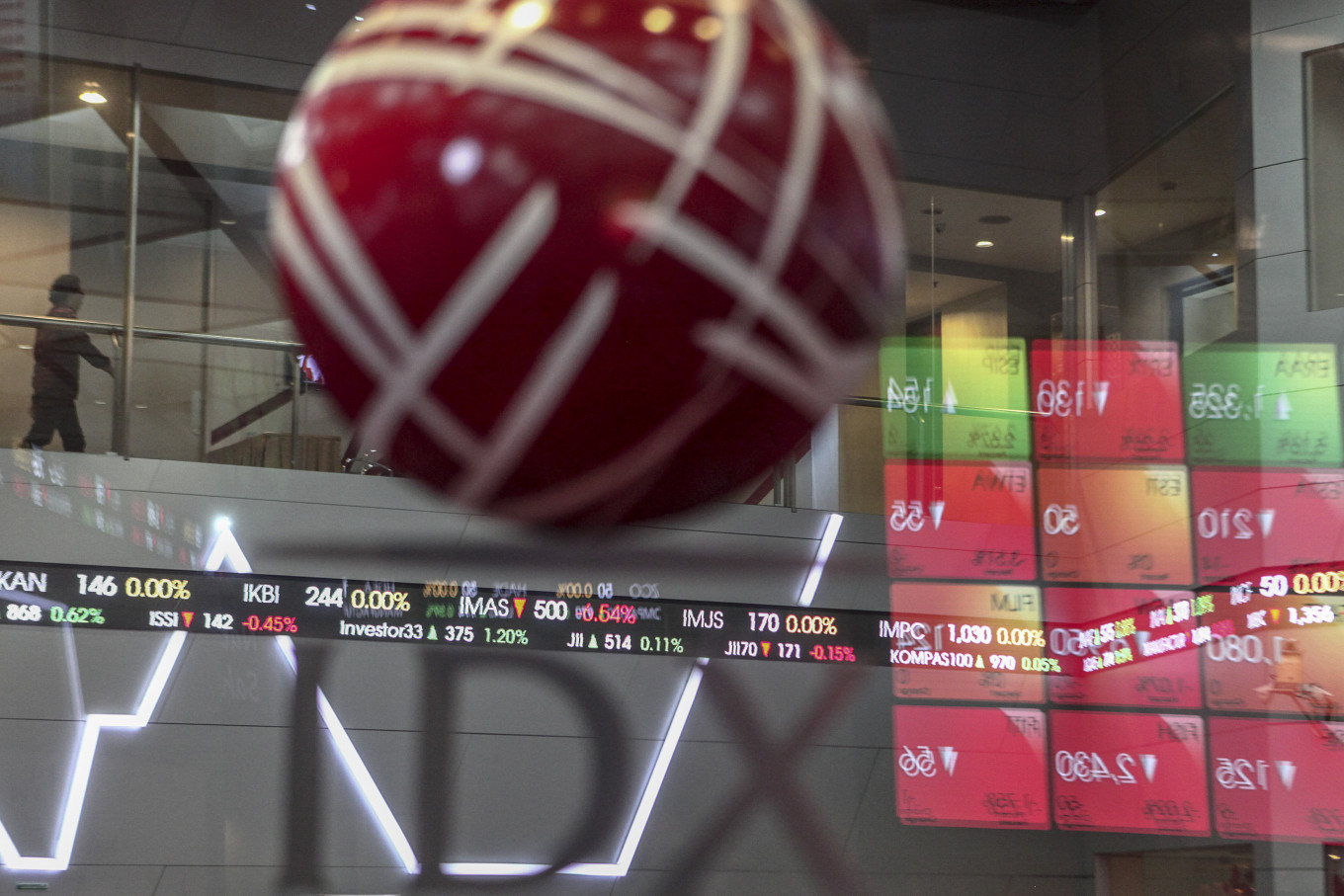Popular Reads
Top Results
Can't find what you're looking for?
View all search resultsPopular Reads
Top Results
Can't find what you're looking for?
View all search resultsBear market not over despite recent gains: Analysts
The recent meltdown of share prices on the Indonesian stock exchange is not over despite signs of recovery in the past two weeks, analysts have said.
Change text size
Gift Premium Articles
to Anyone
The recent meltdown of share prices on the Indonesian stock exchange is not over despite signs of recovery in the past two weeks, stock analysts have said.
Mirae Asset Sekuritas Indonesia said in its monthly strategy report published on April 6, “there are more reasons to think that the volatility is not over yet”. The securities company estimates that manufacturing activities “will even get worse” in April and May.
When asked about the outlook for the month ahead, Mirae Asset head of research Hariyanto Wijaya told The Jakarta Post on Monday that the Jakarta Composite Index (JCI), the main gauge of Indonesia Stock Exchange (IDX), was likely to undergo a correction in May due to weak economic data and an outflow of capital.
“We think foreign investors would continue to book a net sell on Indonesian equity in May,” he said.
The global meltdown began to hit the local stock market following the announcement of the country’s first COVID-19 case on March 2. By March 23, the JCI had plunged to 3,900 points – the lowest seen since October 2015 – due to COVID-19-driven market panic.
The index began to show signs of recovery in the following days, after the exchange introduced a new measure to protect the index from falling further. Between March 23 and April 29, the index climbed 14.48 percent.
On Thursday, last week, the JCI gained 3.26 percent, in line with the increase in most regional price indeces.
However, share prices on the local exchange reversed the upward trend on Monday amid selling pressure from both local and foreign investors. The index lost 2.5 percent to end the morning session on Monday at 4,595 points, marking a 27 percent decrease so far this year.
Artha Sekuritas Indonesia vice president Frederik Rasali shared the cautious view. He told the Post on April 30 that “as long as the economic sentiment is not good, the increase in the JCI is still very risky”.
He explained that the relatively calm market was a result of the exchange’s newly introduced 7 percent limit-down policy, which protected the index against free-fall.
Frederik went on to say that he believed foreign investors would continue their selling spree and opt for cash for higher liquidity.
Over the past five weeks, share sales by foreign investors exceeded buys by Rp 7.3 trillion (US$472 million). The average net foreign sell volume per week between March 23 to April 24 reached Rp 1.46 trillion. According to IDX statistics from April 30, foreign net sales have reached Rp 19.13 trillion this year.
“On the outlook, if we look at the global conditions with regard to the spread of the coronavirus, [on the chart], it has started to plateau. Hence, there is a possibility that the market, too, will recover,” Jasa Utama Capital analyst Chris Apriliony told the Post on April 30.
He suggested that the increase in the number of countries that have loosened their lockdowns following the flattening of their COVID-19 curve should provide positive sentiment for investors.
Recently, a number of European Union countries have announced an easing of restrictions, including France, Italy and Spain. South Korea has also decided to lift several movement restrictions, as has Vietnam.
Several sectors have been performing well on the local bourse amid the health crisis. Chris observed that telecommunications and consumer goods were among the best performers, yet the retail sector had not been performing well as the pandemic hit the sector quite hard.
Meanwhile, Asian stock markets fell sharply on Monday as risk sentiment turned sour after US officials tried to pin blame for the coronavirus pandemic on China, stoking worries of fresh tensions between the world's top two economies, Reuters reported.
Singapore shares tumbled as much as 3.3 percent, their sharpest intraday drop since March 30, while Malaysian shares shed as much as 2.3 percent, their worst in six weeks, ahead of March trade data.










